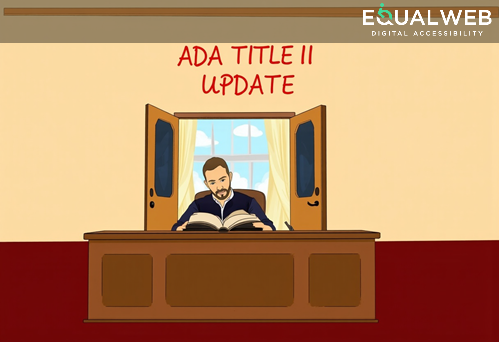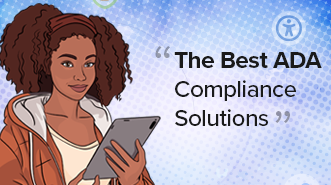What Is Web Accessibility?
Website accessibility means designing websites, tools, and technologies that people with disabilities can use. It removes digital barriers, enabling interaction for individuals with visual, motor, auditory, cognitive, and other impairments.
Screen readers, captions, keyboard navigation, and color contrast adjustments are all examples of features that make websites easier to use for everyone. Accessibility should be a core design principle, not an afterthought.
Who Benefits From Web Accessibility?
Accessibility benefits millions of users. People with visual impairments rely on screen readers or magnifiers. Those with motor limitations use keyboards or adaptive devices to navigate. Deaf or hard of hearing users need captions and transcripts. Individuals with cognitive conditions often depend on clear layouts and consistent navigation. Older adults, whose abilities may decline with age, also benefit greatly.
Even users without disabilities - such as people using mobile devices or experiencing poor internet connections - find accessible websites easier to navigate and understand. Inclusive design benefits everyone.
Why It Matters
Accessible websites reach more users, perform better across devices, and help build stronger customer loyalty. From a business perspective, it`s a smart investment. From a legal standpoint, it’s increasingly mandatory.
In the United States, businesses are expected to comply with the
Americans with Disabilities Act (ADA), while federal agencies must meet
Section 508 requirements. Non-compliance risks include lawsuits, fines, and reputational damage.
Legal Obligations
In the U.S., the Americans with Disabilities Act (ADA) requires businesses to ensure digital access for people with disabilities. Section 508 also applies to federal agencies and contractors. Non-compliance can lead to lawsuits, fines, or reputational harm.
Business Advantages
Accessibility improves usability for all users, not just those with disabilities. It leads to lower bounce rates, higher engagement, and improved brand perception.
Accessible sites send a message: everyone is welcome. That can turn into higher conversion rates and long-term customer loyalty.
What Web Accessibility Involves
Achieving
website accessibility involves thoughtful design and development choices. For example, all images should have descriptive alt text. Websites must support keyboard navigation fully and provide transcripts or captions for audio and video content.
Font sizes and layouts should be easy to read, and proper heading structures and semantic HTML are key to logical content flow. Developers should also avoid using flashing or seizure-triggering animations.
In short, accessibility is about making your site adaptable to users’ needs.
Why Outsourcing Makes Sense
Meeting
WCAG 2.2 standards requires specialized knowledge and regular upkeep. EqualWeb makes this manageable through a complete service model.
Rather than burdening internal teams, our hybrid solution handles both automated remediation and expert-led manual fixes, offering peace of mind and consistent compliance.
EqualWeb’s Full Accessibility Solution
EqualWeb offers a fully managed accessibility service that includes:
- Custom-generated accessibility code for your website
- AI-powered Toolbar that improves accessibility immediately
- Manual remediation for complex issues
- Ongoing monitoring and quarterly reports
Whether you`re a small business or a large enterprise, EqualWeb helps ensure digital inclusion with minimal effort on your part.
Explore our Plans & Pricing here.




